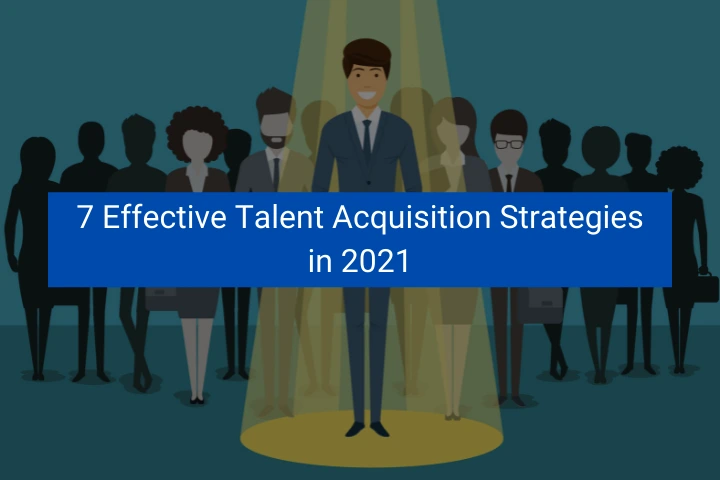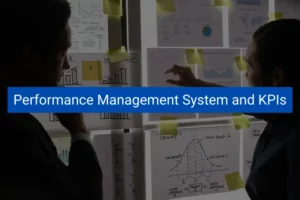The success of an organization is inextricably linked to the quality of its personnel. This well-recognized premise of modern human resources (HR) departments explains why so many businesses are focusing on hiring the finest future employees. Let's look at how talent acquisition might function in practice for your firm.

What is talent acquisition and what are the advantages of doing so?
The business's ability to acquire qualified employees to meet its operational needs is called talent acquisition. The task related to talent acquisition is normally the responsibility of the HR department. However, some large organizations have developed separate talent acquisition units to manage the strategy and day-to-day operations.
It can assist recruiters in identifying and targeting people with certain talents and expertise that are useful to the firm, as well as implementing imperatives to attract such persons to the company rather than losing them to the competition.
What are the important steps in a talent acquisition process that is automated?
First, with minimum manual input from recruiters, new job postings can be automatically posted to appropriate job boards, social media channels, or recruiting agencies.
It's a terrific approach to directly target the types of people you're looking for, depending on where they're most likely to hunt for a new job, not only because it gets the vacancy publicized fast and effortlessly.
Next, owing to auto-replies and real-time cooperation, automation can let recruiters engage in meaningful conversation with top talent from the start of the hiring process. This is a wonderful approach to building strong relationships with exceptional people early on, and it can help you lower candidate dropout rates and speed up the hiring process.
Talent Acquisition Strategies That Work in 2021
Let's now consider how to implement a successful and efficient talent acquisition procedure across your organization.
1. Develop a comprehensive talent acquisition strategy.
The first step is to assess your organization's present talent acquisition situation and set some clear goals to enhance it in the short, medium, and long term. In an ideal world, you'd have access to facts and statistics on the quality and effectiveness of your recruitment process and then collaborate with HR and leadership teams to develop a solid recruitment plan that complements your current approach.
2. Keep an eye on the competition
If you feel like you're always losing out on good prospects to your competitors, it's worth looking into how they find and hire top people for their company. It's possible that you're overlooking something.
3. Take advantage of talent acquisition software
Automating your talent acquisition operations is an excellent method to improve their efficiency and effectiveness. On the market, there are a plethora of talent acquisition tools that can assist you in refining your recruitment process.
With capabilities like auto job postings to job boards and real-time applicant collaboration, Kissflow HR Cloud provides its users with simple and easy-to-use functionality. These features can significantly improve your end-to-end recruitment process.
4. Create talent pipelines that are future-proof
Move away from reactive recruiting to satisfy immediate business needs and instead focus on your organization's long-term human resource needs. This entails connecting with candidates and developing relationships that will prepare them for future opportunities, as well as creating a strong talent pipeline to address future skills shortfalls.
5. Involve the rest of the company
To be effective, talent acquisition should be at the center of your organization's strategy. As a result, it will require buy-in from a wide range of stakeholders, including the leadership team and hiring managers, as well as external partners such as recruiting agencies.
6. Use employee references to your advantage.
When looking for new talent, start with your existing talented personnel. It's likely that they have contacts outside of the company that possesses the qualities and characteristics that you respect.
7. Be adaptable and agile
The talent acquisition needs of your company will fluctuate depending on a range of factors, ranging from the external economic environment to internal business conditions. To fulfill your company's talent demands, you'll need to adapt your strategy.
How do talent management and talent acquisition strategies differ?
Talent management is a crucial component of a successful and forward-thinking recruitment strategy, but it is distinct from talent acquisition, which is concerned with locating, attracting, and hiring qualified personnel. Talent management is a broad word that refers to an organization's efforts to attract, retain, engage, empower, and advance skilled employees.
Coaching and mentoring programs to promote and build skills within the workforce, creating talent pools of individuals with promise, and executing thorough succession plans to meet the business's future needs from a people perspective are all examples of talent management activities.
For Human Resource, Payroll and many more HR Services, visit our website https://lingueeglobal.com/



